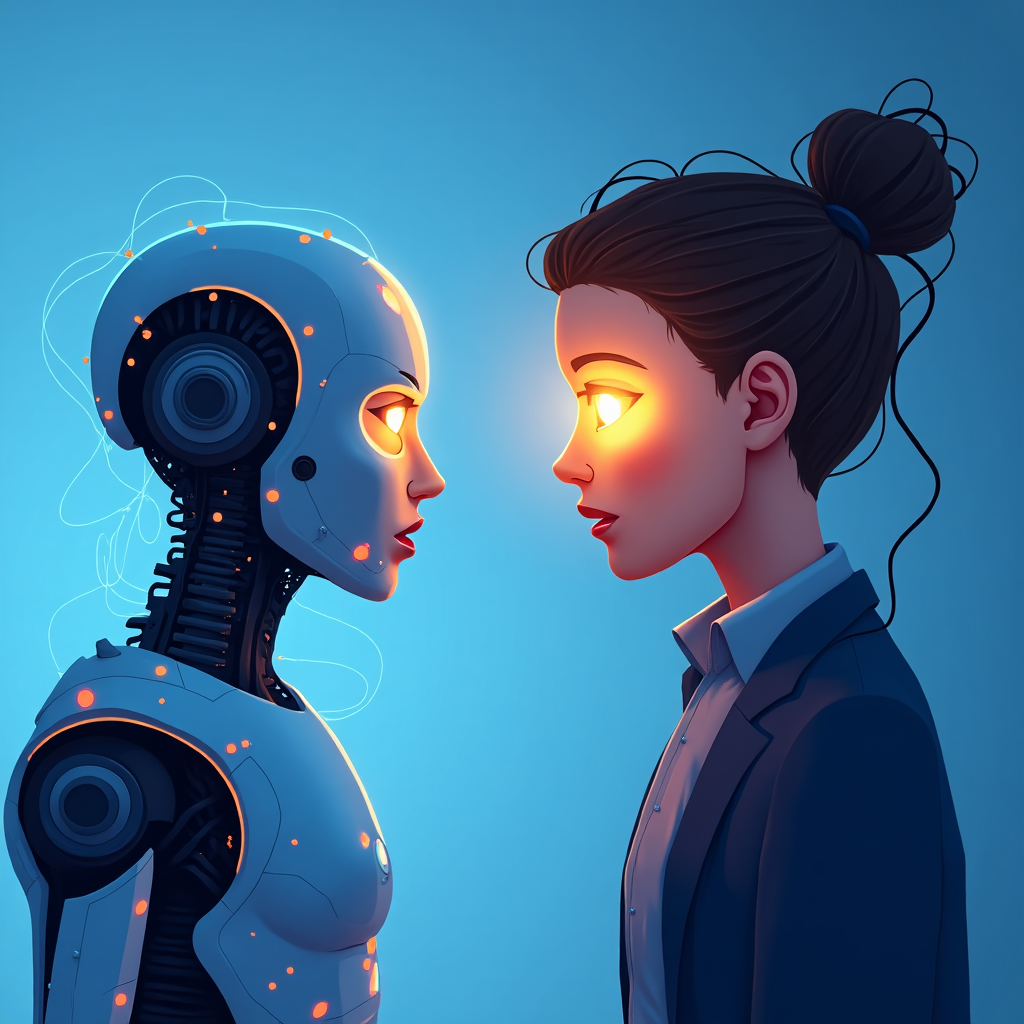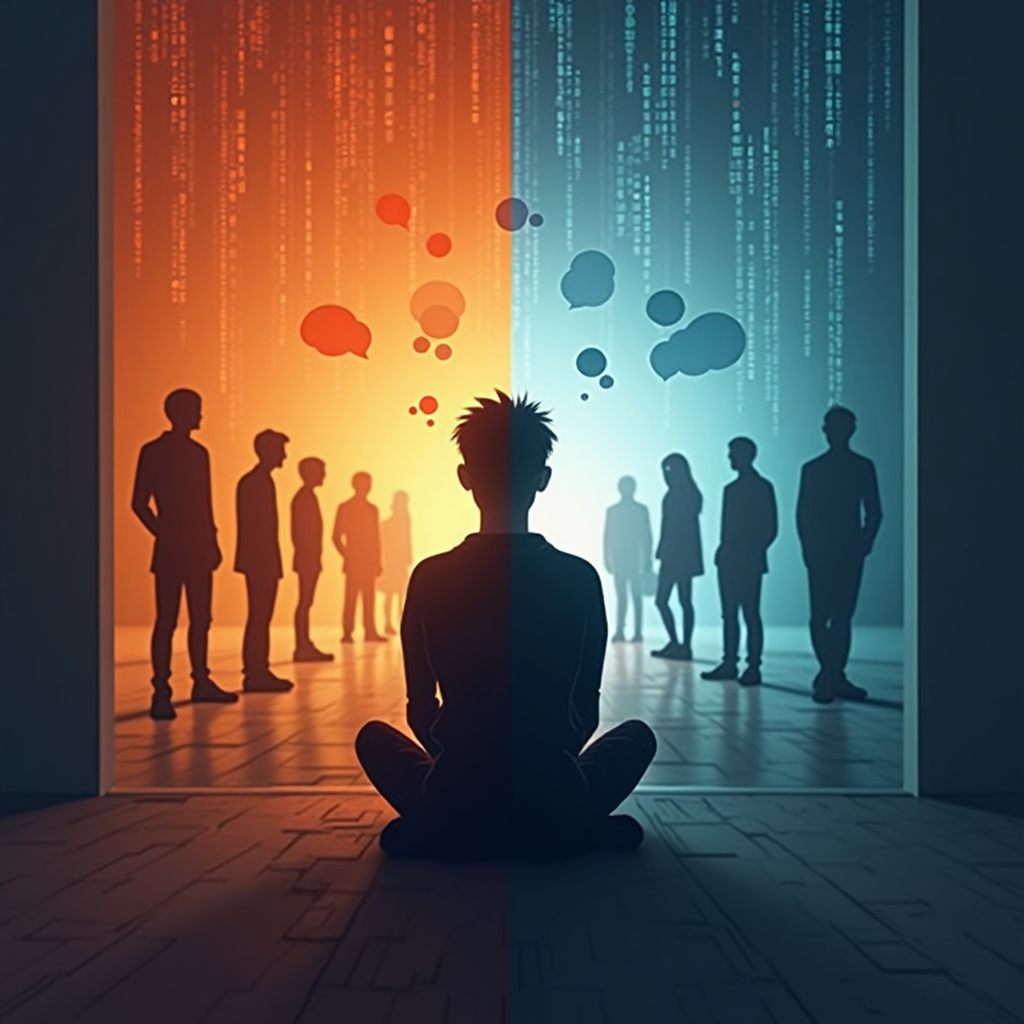Artificial Intelligence chatbots (AI), and in particular OpenAI’s ChatGPT have become a vital part of digital communication. ChatGPT, which can answer questions and engage in deep conversations with users, has revolutionized the way that people interact with technology. Recent studies by OpenAI Media Lab and the Massachusetts Institute of Technology Media Lab have shown that these AI-driven conversation can be companionship. However, they also suggest a complex reality. Their research suggests that frequent interactions with AI chatbots can lead to feelings of loneliness, and reduced socialization. This is especially true for certain user groups.
Understanding the Research

OpenAI carried out a large-scale analysis of over 40,000,000 ChatGPT conversations to analyze the emotional impact of AI interactions. The research was conducted to better understand how AI chatbots affect social behavior and how users interact with them emotionally. The MIT Media Lab conducted a controlled study over a period of four weeks with 1,000 participants in order to evaluate the psychological effects associated with interacting with ChatGPT using both voice and text modes.
These studies provide valuable insight into the risks and benefits associated with relying on AI for social interaction.
The Key Findings of the Studies

1. Emotional Engagement among Heavy Users
A small group of “power-users” that showed a deep emotional connection to ChatGPT was one of the most interesting discoveries. They relied heavily upon the chatbot as a companion, and often replaced human interaction with AI conversation. While some users felt initially comforted by the chatbot, prolonged interaction led to an increase in loneliness and decreased socialization.
2. The Impact of Interaction Modalities
Mode of interaction played an important role in determining the emotional reactions of users:
- Text based interactions: Over time, users who engage in text-based communication show more emotional dependence. Many users reported turning to ChatGPT to find social interaction with family and friends.
- Voice interaction: Initially, voice-based AI conversation seemed to reduce loneliness by providing a human-like experience. For those who are already lonely, relying too heavily on voice AI can lead to an increase in emotional attachment, and even a decrease in social interaction.
3. Differences between men and women in AI interactions
The study also revealed gender differences in AI interaction. After prolonged use of ChatGPT, female users are slightly more likely than males to feel a decrease in socialization. Users who interacted more with chatbots of a different gender reported feelings of loneliness and emotional dependence.
The ChatGPT Paradox – Help or Harm?

These findings illustrate what experts call the “ChatGPT Paradox”: while AI chatbots initially can help alleviate loneliness but they can also increase isolation over time. These studies indicate that AI chatbots can provide temporary companionship. However, relying too heavily on AI to fulfill social needs may have unintended consequences.
This raises an important question: Should AI chatbots encourage more social interaction in the real world? AI developers could implement features that gently encourage users to seek human company rather than increasing their reliance on AI conversation?
Psychological and Social Implications
We must be aware of the wider social and psychological implications that AI chatbots have in our daily lives.
- AI is meant to complement human interaction, and not replace it. Although AI can offer emotional support, they should not be used as a substitute for the real-life connection with family members or friends.
- Developers need to focus on ethical AI. Future designs of chatbots could include features that encourage real-world social interaction rather than dependence.
- It is important to keep a balance between the use of AI and its emotional effects.
The conclusion of the article is:
OpenAI’s and MIT Media Lab’s research provides important insights into the relationship between AI chatbots such as ChatGPT and humans. AI can reduce loneliness but relying too heavily on virtual interactions may have unintended emotional effects. As we integrate AI into our everyday lives, it is important to understand the risks and benefits.
AI chatbots are becoming more sophisticated. It is important to maintain a balance of digital companionship with human connections. AI should not replace social interaction, but rather encourage users to keep meaningful relationships in real life.
What Are Your Thoughts about This?
Do you believe AI chatbots make people more lonely, or are they a great social outlet? Comment below and share your thoughts!
